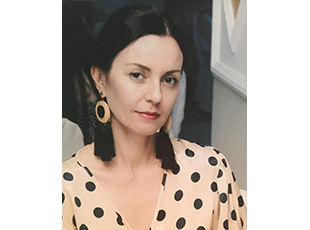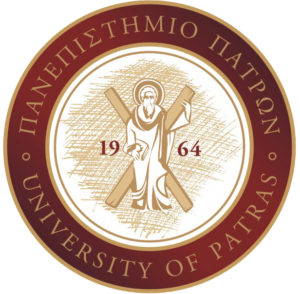
Xenia (Oxana) Kalita is a philologist and a highly qualified instructor with extensive experience in teaching Russian as a Foreign Language and in Applied Linguistics.
She has studied at the Peoples’ Friendship University of Russia (RUDN) , Moscow (Ph.D.), Democritus University of Thrace, Department of Language, Literature and Culture of Black Sea Countries, Greece (MSc) and Pyatigorsk State Linguistic University, Russia, Department of Russian Philology, Russia (B.A.).
She has been teaching for the last 16 years at public universities such as Democritus University of Thrace, National and Kapodistrian University of Athens and University of Patras, Greece. In parallel, Mrs. Kalita has served as a visiting lecturer at Peoples Friendship University of Russia, the Russian New University in Moscow, the Higher School of Translators of the M.V. Lomonosov State University of Moscow, the Apeiron – PanEuropean University in Banja Luka, Bosnia and Herzegovina and at the University of Granada, Faculty of Translation and Interpreting in Spaιn.
She has participated in research and educational programs, both national and European such as:
1) ERASMUS+ / ΚΑ131; Multiple Intelligence – New Approach for Effective Education
2)Supporting the education sector of the Republics of Turkmenistan and Kyrgystan
3)Developing a system for lifelong education in workplace for the needs of Ukraine.
4)Conducting a questionnaire-based survey for the needs of INTERAMERICAN SA in the context of the company’s cooperation with the University of Patras.
Russian Language II – Beginners II
Russian Language III – Advanced I
Russian Language IV – Advanced II
Translation Issues of the Russian Language
Mrs. Kalita specializes in theory and methodology of education and training of Russian as a foreign language. Her research interests cover: (a) the development of a nationally oriented methodology for teaching Russian to Greek students, (b) the resolution of diverse literary, didactic, pedagogical etc. problems of a modern teaching methodology, (c) the integrated use of technology products and services (d) the comparison, enrichment and creation of pedagogical conditions for the needs of the Russian language learning methodology and (e) translation issues of the Russian language (more than 35 scientific publications).

